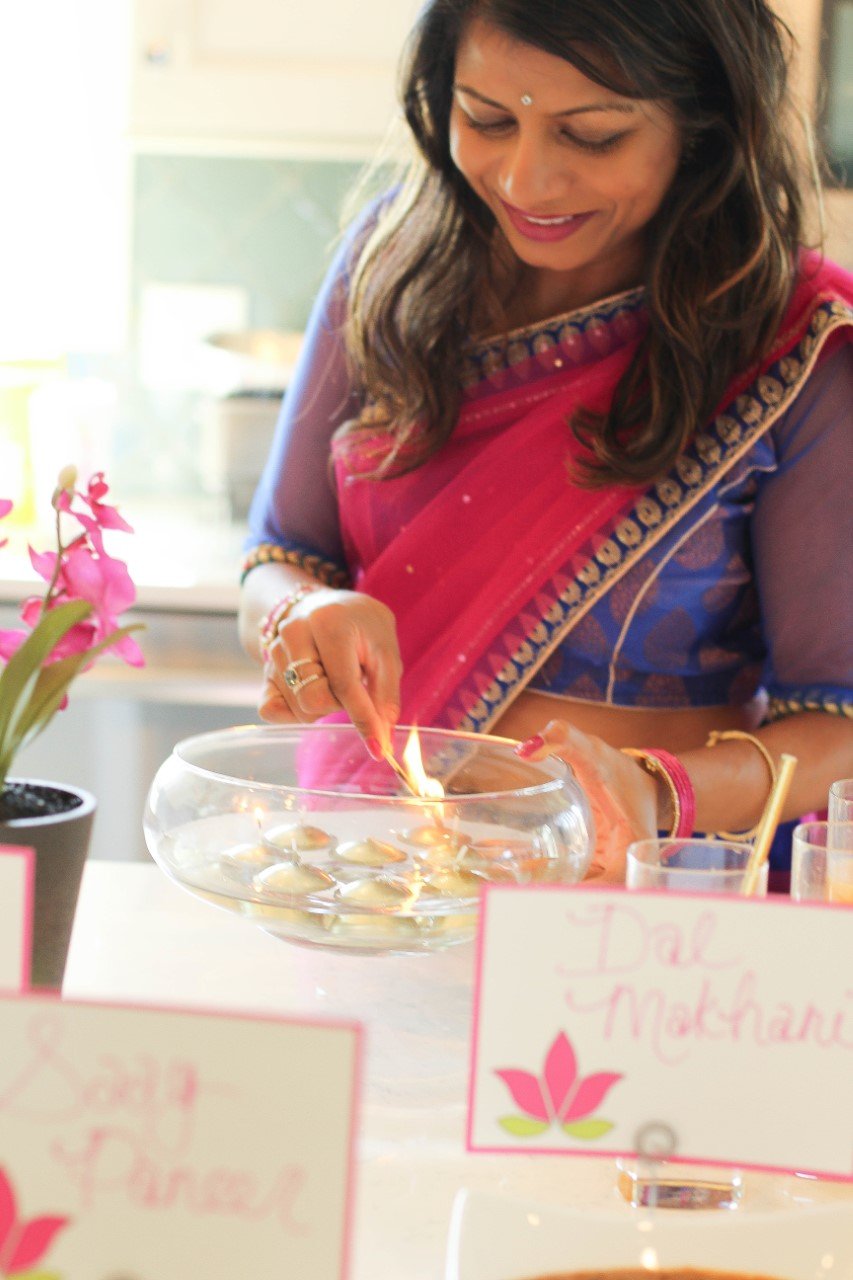#RepresentationMatters
"I want yellow hair mommy. I don't like my black hair" my 5-year-old daughter said to me as she brushed her Elsa doll's hair.
"What makes you say that?" I winced.
"Because yellow hair is so pretty and shiny...and mine is not" she replied nonchalantly as she started brushing her Barbie's blond hair.
"Both are pretty, blond hair is pretty AND so is your black hair" I replied in the most upbeat tone I could muster.
My daughter was not convinced.
In just 5 impressionable years something told her that she was not as pretty as other "yellow haired" girls. It saddened me that her perception of beauty was so skewed by what she saw in the world at such an early age. She rarely saw anyone who looked like her in movies, TV shows...mainstream media in general. The lack of representation out there impacted her perceptions, unconscious bias and, sadly, self-esteem.
My parents were immigrants, and I was very young when we moved to America. In my own childhood, we rarely saw Indians in mainstream media...and when they did start to make appearances, it was stereotypical characters like doctors, scientists and convenience store owners with accents (Thanks to The Simpsons). And so, growing up, I often felt I didn't belong (even a task like finding the right makeup foundation was cumbersome when only very light and very dark shades were available).
However, things have gotten better over time…and as I've grown and matured, I've learned to embrace both sides of my identity and see the "best of both worlds:" we celebrate Diwali and we celebrate Christmas... we love to eat cheeseburgers as much as we love to eat samosas... we love wearing rompers as much as we love wearing saris. It took a long time for me to get to this place, and I didn't want my girls to go through the struggles I did to embrace their dual identities.
As a marketing professional, a minority and a mother, I truly understand how much representation matters. Over the last few decades, I have seen things shift with more companies placing importance on diversity in media and creating products for a diverse array of consumers. However, I still didn't see the specific products that were meaningful to me and others like myself being created (likely because minority segments don't provide sufficient ROI for many companies). It was always a void I felt, and something I thought about changing for a long time. After I had my girls, it was something I felt compelled to do! I wanted a different and better experience for my girls, one where they saw that being unique is something to be proud of.
"Be the change you want to see in the world" - Mahatma Gandhi
And so, I set out to start my business, Teal Firefly, with a mission to create meaningful items that South Asians could have to celebrate and pass on their culture to the next generation. I designed and brought to market new products rooted in my brands values:
Culture
As a second-generation Indian American mother, I want my children to have a strong identity that we are 100% Indian and 100% American. That is why I created Cultural Craft Kits for important occasions like Diwali to explain its significance so that children can learn about their culture in a fun, simplified and engaging way.
Celebration
Indian culture is so rich and vibrant, and the customs unique and so should be celebrated in a way that is relevant. At my own wedding, I received so many cards with women in white dresses, which was a stark contrast to the sari I wore. It was almost insulting, but there just weren’t any other options in the marketplace…until I changed that. I created the Milestone Card Collection to depict various occasions and capture the special traditions in Indian culture in a meaningful way.
Connection
I created stationery and art prints with the goal to forge a sense of connection to our Indian roots. I designed beautiful gold-foiled stationery to showcase the Indian aesthetic by capturing the bold and vibrant patterns (often seen on saris) with a modern style. I also created personalized Bollywood dance art prints so young Indian girls could see themselves reflected in art. At the time, there were so many ballet art prints in the marketplace but no Bollywood dance art prints. My girls and so many other Indian girls learn both ballet and Bollywood dance, and now they have available both types of art prints. I’m proud to see so many young girls now use the personalized Bollywood art prints to decorate their rooms with pride.
An unexpected benefit of creating my business is that it helped me connect with so many other entrepreneurs who were aligned with the same mission in all walks of life – food bloggers, fashion designers, toy makers, crafters, authors and more. As creators, we have built an incredible community and had rich conversations on how we could make a difference. We often collaborated together and used #representationmatters on specific Instagram posts to elevate our message to a broader audience and to virtually applaud wins in real time (Disney’s Mira the Royal Detective and Mindy Kaling’s Never Have I Ever, which depicts a teenage Indian-American without the stereotypes). It has taken many years and many people to band together, but it is exciting to see that collectively we've had an impact! In recent years many Indian brands, bloggers and influencers have gained partnerships with businesses who see our value – Nordstrom, Target, Lowe's, Wal-Mart and more! And most importantly we are impacting the next generation of Indian American children who will see that their uniqueness is being embraced and celebrated by the world around them.
Ultimately it is our differences that make our world more colorful and special. And while DEI initiatives have improved much over the years... there's still a long way to go. If you are passionate about representation and inclusion, reach out or follow us on LinkedIn to keep the conversation going!

